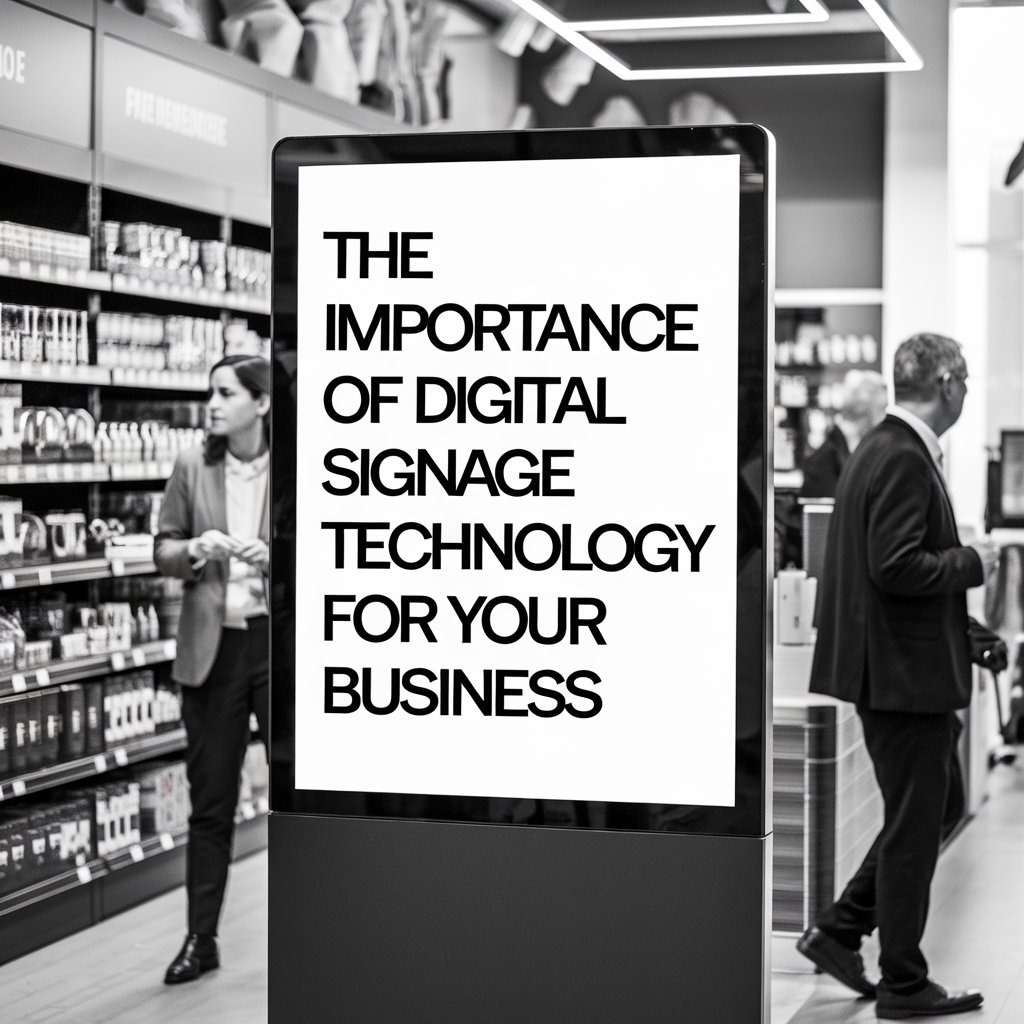In today’s rapidly evolving business landscape, staying relevant and engaging to consumers requires the integration of innovative tools. One powerful tool that has transformed communication and customer engagement is digital signage technology. This approach uses dynamic displays to captivate audiences, drive brand awareness, and promote services and products effectively. The key to making this possible lies in the digital signage player, which plays a central role in transmitting content to digital screens. By understanding the benefits and potential of digital signage technology, businesses can improve customer experiences and streamline communication efforts to stay competitive. In this article, we’ll discuss the advantages of digital signage, its versatile applications, and how businesses can make the most of this powerful technology.
Understanding Digital Signage Technology
Digital signage involves using screens like LED, LCD, or projectors to show digital content, including multimedia elements such as videos, images, and graphics. Typically placed in high-traffic areas, digital displays can be installed in settings such as retail shops, corporate offices, restaurants, healthcare facilities, and airports. The digital signage player is the hardware component that receives content from a server and projects it onto these screens. With remote access, businesses can adjust and control content in real-time, making it easy to update messaging as needed from any location.
The flexibility and customization options offered by digital signage make it an incredibly effective tool for delivering tailored messages. Unlike static signage, digital displays enable businesses to update their content quickly, making it a popular choice for various industries that need real-time communication solutions.
Major Advantages of Digital Signage
- Increases Customer Engagement
Digital signage enables businesses to deliver dynamic content, helping to attract and engage customers effectively. For example, in a retail environment, digital signage can highlight new product features, customer reviews, or exclusive discounts. Restaurants can use it to display rotating menus or seasonal promotions. By incorporating eye-catching visuals, businesses can establish a more immersive environment that captures attention, engages customers, and promotes interaction.
- Cost-Effective and Adaptable
Unlike traditional printed signage, which requires recurring costs for design, printing, and installation, digital signage significantly reduces these expenses. Though the upfront investment in digital screens and a digital signage player may be higher, the long-term savings are considerable as the need for frequent reprinting is eliminated. Furthermore, digital signage reduces waste, making it an environmentally friendly choice.
Digital signage can also scale seamlessly with business growth. Whether adding more screens to a single location or expanding to multiple sites, digital signage allows businesses to easily adapt and integrate their content strategy across various settings.
- Boosts Sales and Drives Revenue
Digital signage has a direct impact on sales by influencing buying decisions. Studies show that the presence of digital displays in retail settings can increase sales by up to 30%, as they allow stores to highlight promotions, showcase product benefits, and create urgency through time-sensitive offers. Restaurants can use digital signage to showcase daily specials and combo deals, encouraging customers to explore new items or upgrade their orders.
By placing digital signage in high-visibility areas, businesses can ensure their messages reach more customers, which can lead to increased revenue over time.
- Enhances Internal Communication
Beyond customer-facing applications, digital signage is also valuable for internal communication within companies. In an office environment, it can display important company announcements, share internal news, present performance updates, and send event reminders. This improves information accessibility, ensuring that employees stay informed and connected with company goals.
Digital signage can also be used as an educational tool. Businesses can share instructional videos, product training, and onboarding content, enabling employees to learn and review information at their convenience.
- Real-Time Content Adjustments
Digital signage stands out because it allows businesses to make instant updates to their content. This is particularly helpful for businesses operating in fast-paced environments, like airports or hospitals, where real-time information is critical. Whether updating a special offer, announcing an event, or displaying important safety messages, businesses can manage content remotely through the digital signage player.
This real-time capability offers great versatility for businesses that need to adjust their messaging throughout the day or based on specific customer needs. With remote management options, businesses of any size can maintain a unified, consistent message across multiple locations.
- Customizable and Targeted Content
Digital signage offers businesses the ability to customize content for specific times, locations, or audiences. For example, a retail store can show different offers during peak hours, while restaurants can switch from breakfast to lunch menus automatically. By targeting messaging based on audience preferences, businesses can increase engagement and create more meaningful interactions.
Data analytics can also be used to evaluate which content is most effective. By tracking customer responses and adjusting content accordingly, businesses can refine their digital signage strategy to optimize outcomes.
Implementing Digital Signage in Your Business
For businesses interested in using digital signage, careful planning and strategy development are crucial. Here are a few steps to help you begin:
-
Define Clear Objectives Before implementation, clarify the purpose of your digital signage. Are you aiming to increase brand visibility, enhance customer experience, improve communication, or all of the above? Understanding these goals will help shape an effective content and placement strategy.
-
Select the Right Hardware Choosing suitable screens and a digital signage player is essential for successful implementation. Consider display requirements such as resolution, size, and durability depending on the environment. For example, outdoor displays need weather resistance, while indoor displays prioritize high-quality visuals.
-
Design Compelling Content Content is the backbone of effective digital signage. Focus on creating visually appealing messages that resonate with your target audience. High-quality images, videos, and clear messaging make content more impactful. Regular updates also keep your messaging fresh and engaging for your audience.
-
Use Scheduling Features Take advantage of scheduling features to automate content display based on times of day, events, or seasons. With automation, businesses can maintain relevant messaging without manual intervention, saving time and effort.
-
Monitor Performance and Optimize Once digital signage is in place, track its performance using analytics. By monitoring customer engagement, sales data, and other key metrics, businesses can refine their digital signage approach and continually improve results.
Final Thoughts
Digital signage technology is a versatile and efficient tool that can significantly enhance business communication, increase sales, and engage audiences more effectively. Using a digital signage player and display screens, businesses can deliver visually appealing, real-time content that resonates with customers. Whether aiming to improve customer experiences, boost brand visibility, or streamline internal communication, digital signage offers a strategic advantage that can drive business growth. As more companies integrate this technology into their operations, digital signage is becoming a staple of modern business practices, helping businesses remain adaptable and responsive in a rapidly changing digital world
Related Posts

How Ventilated Bulk Bags Help Preserve Product Quality During Transportation
In the world of logistics and transportation, ensuring the quality…

Why Toll Free Numbers Are Essential for Travel Agencies in 2024
In the competitive landscape of the travel industry, establishing a…

Unlock Your True Potential with Vidalista Black 80 mg Endurance Boost
Stamina and confidence play a pivotal role in the quest…

